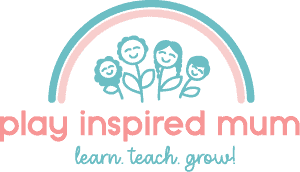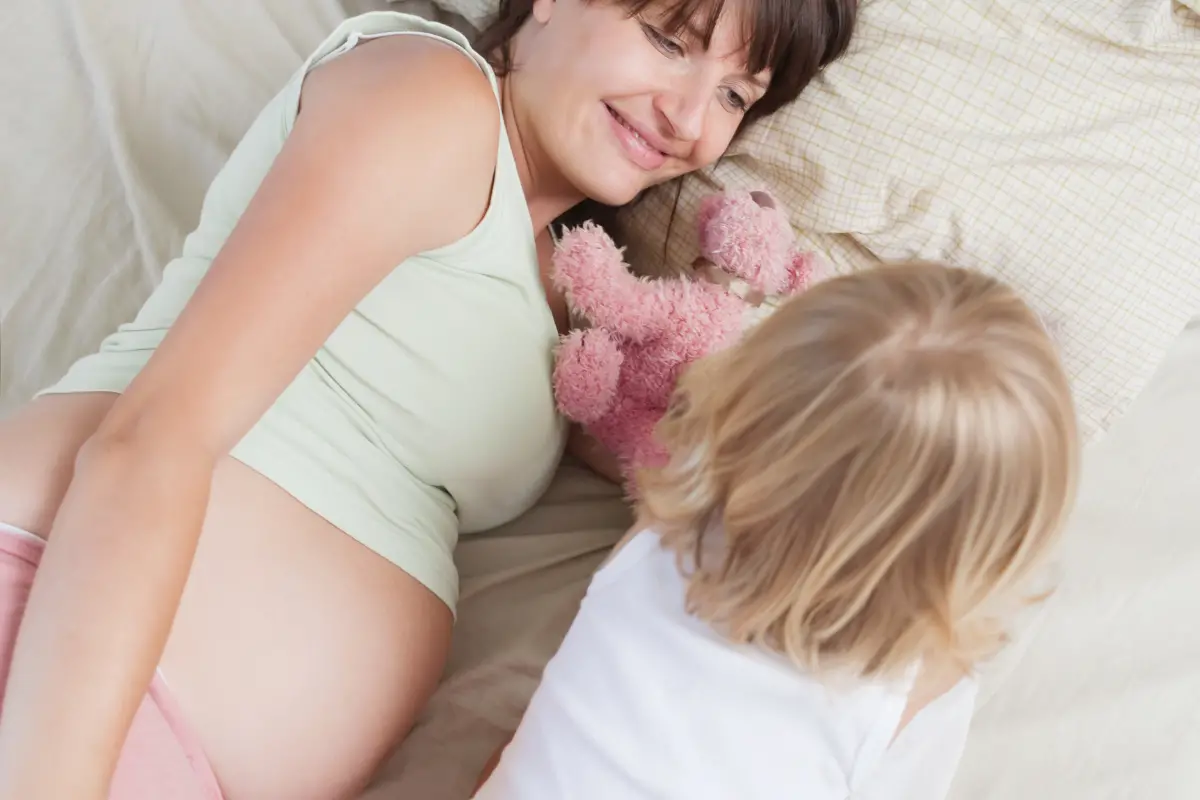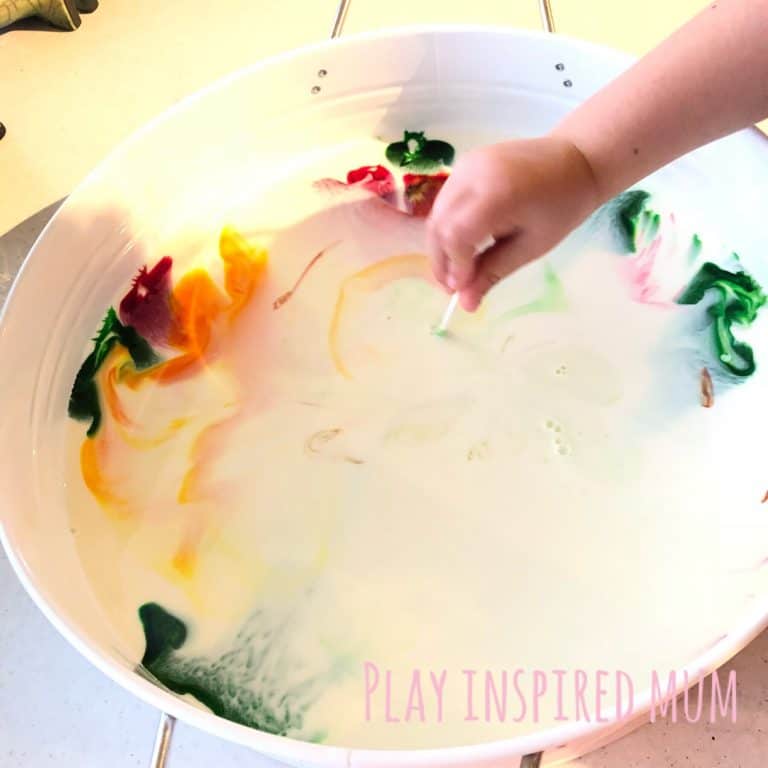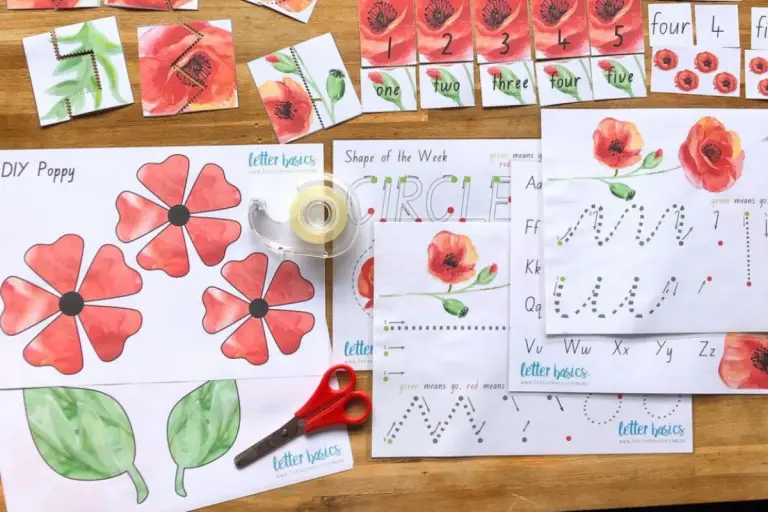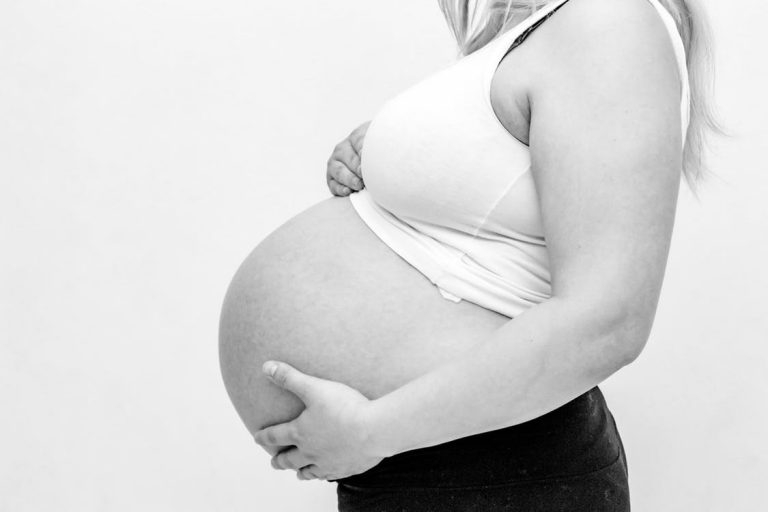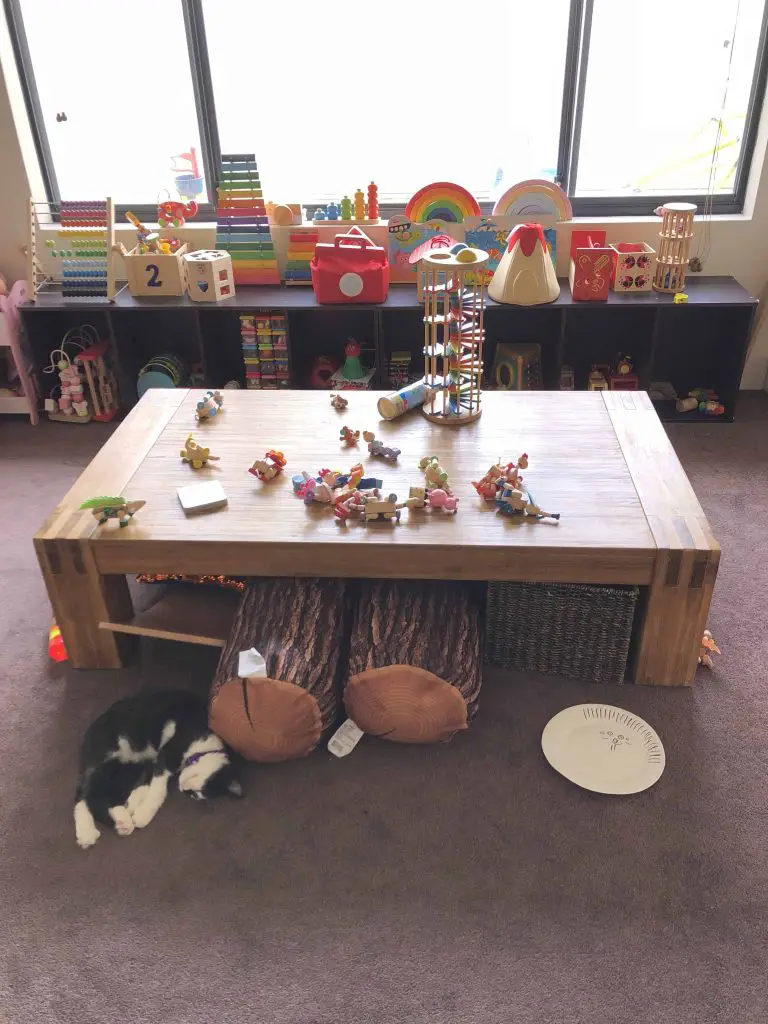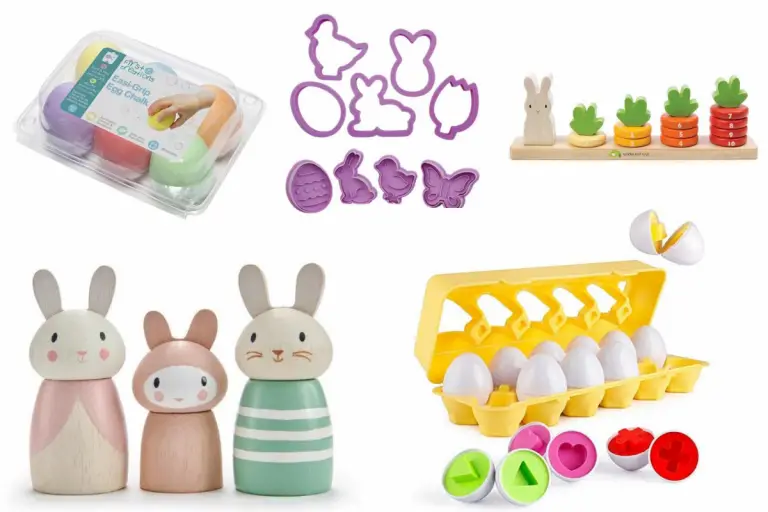Can Your Toddler Sense Pregnancy When You’re Pregnant
Disclosure: This blog contains affiliate links which I may earn a small commission from if you purchase through them, at no extra cost to you.
Can toddlers sense pregnancy?
I often hear stories about toddlers acting differently around pregnant mothers, begging the question: do they have a ‘sixth sense’ for pregnancy?

Can toddlers sense pregnancy?
- The Sixth Sense of Toddlers
- What Science Says About if Can Toddlers Sense Pregnancy
- Physical and Emotional Cues Toddlers May Notice
- Big Sibling Reactions to Subtle Changes
- Anecdotes and Old Wives Tales
- How to Support Your Toddler’s Emotions
- Observing Your Toddler’s Behaviour
- Nurturing the Sibling Bond Early On
- Preparing for the Family Dynamic Shift
- Embracing Change With Your Tiny Best Friend
The Sixth Sense of Toddlers
Many parents marvel at the perceptiveness of their toddlers, who seem to pick up on things before they’re stated explicitly.
This notion suggests that young children possess an intuitive awareness, beyond the traditional five senses, that alerts them to significant changes within their environment.
Children are innately attuned to the emotional and physical rhythms of their caregivers.
My belief, supported by observations in child development, is that they may indeed notice pregnancy-related alterations in mood, behavior, or daily routines.
While scientific research doesn’t conclusively support the idea of a toddler ‘sixth sense’ for pregnancy, tangible shifts in the household atmosphere are certainly within their realm of detection.
Toddlers may not understand the concept of a new sibling on the way, but it’s plausible they sense a gestating change, manifesting through heightened clinginess, curiosity, or fluctuating emotions.
What Science Says About if Can Toddlers Sense Pregnancy
I’ve looked into various studies and scholarly articles in search of scientific evidence concerning the fascinating question: can toddlers actually sense pregnancy?
The idea that young children, with their heightened emotional connections to their caregivers, might pick up on changes during a pregnancy is intriguing.
However, the results from the scientific community are somewhat mixed on this issue.
Some researchers suggest that toddlers are intuitive due to their close bond with their pregnant mothers and may react to behavioral and emotional changes.
Yet, this remains largely observational and lacks a solid scientific foundation to confirm a ‘sixth sense’ regarding pregnancy detection.
Despite claims you might hear, many of these findings stem from anecdotal observations rather than controlled experiments.
Scientists have indeed documented that toddlers can become more attuned to their environment and changes within it, a skill that forms part of their early developmental stages.
Still, when it comes to conclusively stating that a toddler can sense pregnancy, there is no definitive evidence or robust study results to firmly support this theory.
In essence, while toddlers may indeed notice shifts in a pregnant mother’s mood or daily routine, attributing this awareness to a specific ability to detect pregnancy does not stand on concrete scientific ground.
Instead, the changes they perceive are likely linked to the general changes that pregnancy brings about in a household, rather than an inherent ability to sense the early signs of pregnancy itself.
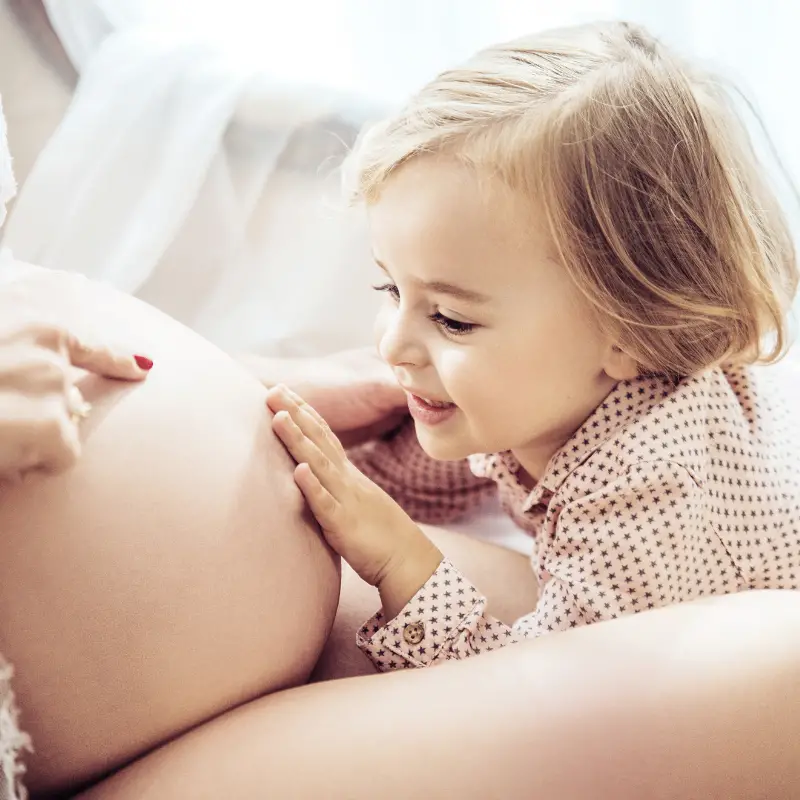
Physical and Emotional Cues Toddlers May Notice
Toddlers possess a keen sense of observation, often noticing shifts in their environment and the people around them with surprising sensitivity.
As pregnant mothers undergo various transformations, their young children may discern several of these alterations, even before a formal announcement is made.
Among the physical appearance changes, toddlers might see a difference in their mother’s posture or gait due to weight gain or observe their mother touching or holding her belly more frequently.
They may point to the growing bump or exhibit curiosity about the changing shape.
Emotionally, toddlers can be quite attuned to their mother’s mood fluctuations.
While they may not grasp the concept of hormonal changes responsible for these swings, they can sense an unusual pattern of emotions and behavioral changes – moments of elation followed by periods of fatigue or irritability.
Pregnant women might also change their daily habits, such as morning sickness, increasing rest periods or altering dietary preferences, small adjustments that do not go unnoticed by perceptive toddlers.
These physical and emotional cues provide subtle hints to toddlers that something different is occurring, often sparking a natural inquisitiveness about the changes unfolding within their family sphere.
Big Sibling Reactions to Subtle Changes
Observing how older toddlers respond to the presence of a new pregnancy in the family can be quite telling.
These young children, possessing a keen sense of observation, might pick up on small alterations in the home environment or shifts in the behaviors of family members.
Subtle clues like changes in the routine of a pregnant woman, such as more frequent rests due to heightened fatigue that comes with first trimester, can alert an older sibling.
Toddlers may also perceive differences in emotional dynamics around them, responding to increased stress levels or the excitement and anticipation that often accompany the advent of a new baby boy or baby girl.
They are sensitive to conversations revolving around baby preparations, or may notice that their mother is experiencing physical discomfort, leading them to act with a newfound gentleness or concern.
In some cases, toddlers exhibit changes in their own behavior, potentially becoming more clingy as they intuit the impending shift in attention that a younger sibling might engender.
They may also mirror the actions of their parents by engaging in ‘parenting play,’ caring for a favorite doll as if it were their little brother or sister.
My first daughter used to wear her baby doll under her t-shirt. She was replicating my pregnancy, often working a mother’s pregnancy into her play.
Such actions indicate their processing of the situation and serve as an opportunity for parents to foster a nurturing relationship between siblings from the very beginning.
Anecdotes and Old Wives Tales
Many parents share tales of their toddler’s unusual clinginess or curiosity about their mother’s belly before a pregnancy announcement.
Some claim their child knew about a new sibling well before the parents even had a positive pregnancy test.
Others recount small changes in behavior, like their little one tenderly kissing their mother’s abdomen or chatting to an unseen baby.
An old wives tale may reinforce these narratives, suggesting that young siblings have a special intuition about their soon-to-be baby brother or baby sister.
However, these stories remain anecdotal, with no scientific basis or anecdotal evidence to confirm their reliability.
Small children are highly intuitive and sensitive to changes in their environment and routine, which might make it seem as if they ‘sense’ something different when a mother is pregnant.
The truth is, any perceived toddler awareness of a new pregnancy might be more accurately attributed to their observation of physical signs and overheard conversations of the good news rather than an innate sixth sense.
Ultimately, while the idea that a toddler can detect a pregnancy early on is a charming notion, we must ground our understanding in reality and recognize that these stories, compelling as they may be, lack concrete evidence.
We do our children a service by acknowledging their perceptiveness while also understanding the limits of what they can truly comprehend at such a tender age.
How to Support Your Toddler’s Emotions
Recognizing your toddler might have a sixth sense about a sibling on the way, offering emotional support becomes imperative.
Communication
It is a good idea to start by keeping communication open.
Sit down with your toddler, even if you believe they can’t fully comprehend, and explain there’s a baby growing inside you.
Use simple language and show them your belly, fostering a connection early.
Be inclusive
Engage your toddler in the pregnancy journey from early pregnancy.
If your toddler is concerned by pregnancy symptoms, remind them that you will be okay and that you will be feeling better in a little while.
Foster a sibling bond
Connect positive experiences to the baby.
Have them talk to the baby through your belly button.
Enjoy laying down while your toddler paints a painting on your growing tummy.
Involve older kids in activities such as choosing outfits for the little brother or little sister-to-be.
Talk about your first pregnancy when they were growing inside you.
This inclusion is the best way to make them feel part of this significant family milestone, reducing feelings of alienation that might arise.
Nurture emotions
Observe their reactions diligently.
If you notice clingy behavior or mood swings, these might be ways your toddler is seeking reassurance.
Respond with extra hugs, patience, and one-on-one time.
Reading children’s books about new babies can also help your toddler grasp the concept of a new family member.
Provide predictability
Maintain your toddler’s routine to provide a sense of security.
This consistency amidst the inevitable changes helps minimize stress for both of you.
And if your energy levels are fluctuating, consider enlisting trusted family members to give you and your toddler the support needed during this transition.
In short
- Normalize New Feelings: Validate any emotions your toddler expresses. Let them know it’s okay to feel excited, curious, or even upset about the upcoming changes. Validation can be a profound source of comfort.
- Reinforce Their Role: Assure your toddler that their relationship with you won’t change. They are gaining a title of ‘big sibling,’ a role that’s special and includes new responsibilities, which can be empowering.
- Create a Supportive Environment: Foster an accepting home atmosphere. Smaller family members often respond to the emotional states of adults. Keeping your own stress managed and perspectives positive reflects in your toddler’s adaptation to the new family dynamic.
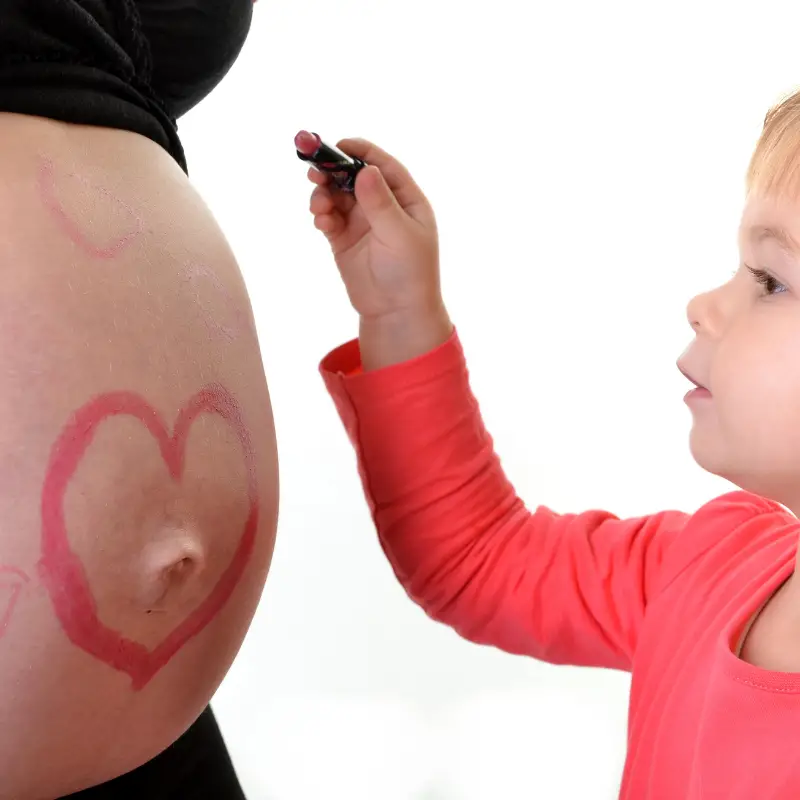
Observing Your Toddler’s Behaviour
If you’re expecting and curious whether your toddler senses the pregnancy, observe their behavior closely.
Toddlers may not articulate their understanding, but they might show increased clinginess, or suddenly revert to behaviors you thought they had outgrown, such as thumb-sucking or insisting on a long-abandoned bottle.
To address these behavioral shifts, maintain open channels of communication.
Use simple language to talk about the pregnancy and involve them in gentle touches or conversations with your baby bump, fostering a connection with the baby-to-be.
These actions may help them feel included and secure in their evolving role.
More sleep disturbances can also surface.
If your toddler starts waking more often at night or resisting naps, these behavior changes could signal their response to the changes in the family dynamic.
Consistent routines can provide reassurance, so strive to keep their daily schedule stable, even when you might feel the urge to make changes in anticipation of the new arrival.
Display patience and understanding. Give yourselves plenty of time.
Offering extra cuddles and reassurance can help your child navigate these emotional waves.
Understand that acting out might be their way of expressing uncertainty.
By remaining calm and providing affection, you reassure your toddler that your love remains steadfast, despite the many changes around the corner.
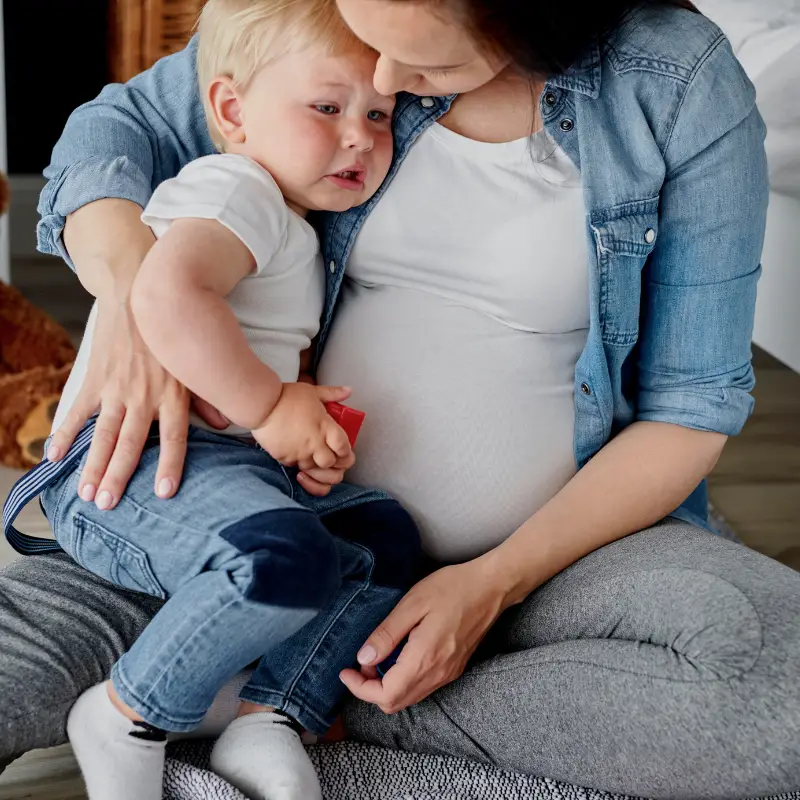
Nurturing the Sibling Bond Early On
Weaving a bond between your toddler and the new sibling starts long before the arrival of a new sibling.
Introducing your child to the idea of a younger sibling invites them to be a part of this life-altering journey well before your unborn baby is born.
One practical method is involving them in the preparations for the baby.
This can range from letting them help set up the nursery to picking out baby clothes or toys for their soon-to-be sidekick.
Choices like these foster ownership, making the forthcoming arrival more tangible for your young one.
Another heartfelt approach is encouraging your toddler to give input on baby names.
While their suggestions might be whimsical, it serves a meaningful purpose: your toddler feels their opinion is valued in the family’s decisions.
They may even become eager to welcome the little one they helped name.
Reading children’s books about becoming a big sibling can also shape their understanding and enthusiasm.
With colorful illustrations and simple language, these stories prepare them for the changes ahead.
As you read together, your child learns through characters they can identify with, easing them into the concept of a bigger family.
Lastly, include your toddler in the excitement of feeling the baby kick.
Allowing them to touch your belly during these moments brings a sense of closeness to the sibling-to-be and begins the bonding process even before the baby is born.
As you guide their hand to feel gentle nudges from the baby, you’re fostering an emotional connection that will continue to grow with time.
Together, these activities lay the foundation for a loving relationship between your children.
Preparing for the Family Dynamic Shift
Bringing a new baby into your family inevitably shifts the dynamics within your home.
For your toddler, these adjustments could breed uncertainty and separation anxiety, emotions that call for your gentle guidance and reassurance.
As parents, taking proactive steps to ensure a smooth transition is key.
Provide stability and familiarity
Begin by reaffirming daily routines.
Your older child finds comfort in predictability, so stick to well-established habits for meals, playtime, and, most significantly, bedtime rituals.
Consistency in these aspects provides your toddler with a sense of security amid the changing landscape at home.
Before the big arrival day comes, have your toddler become accustomed to the carer who will be minding them while Mum and Dad are at the hospital.
Keep your first born in their home, with their things and encourage the carer to stick to the same routine they are used too.
Affirm your toddler
Take notice of signs that your toddler may be experiencing separation anxiety.
When previously they have had a lot of attention from their parents, this is now being divided with a new baby brother or sister.
These might manifest as increased clinginess or reluctance to part ways at childcare drop-offs.
Address these feelings by allotting dedicated periods for one-on-one interaction, reading stories, or engaging in their favorite activities together.
Such moments reassure your child of their place in your life despite the new brother or sister’s arrival.
Introduce the concept of a new sibling gradually, creating a narrative that instills excitement while painting your toddler as an involved big brother or sister.
Include a growing love along with the concept of pregnancy. That parents still have all the love for the older children while new love grows for the baby.
Encourage them to help with baby-related tasks, whether it’s picking out wipes at the grocery store or setting up the nursery.
This involvement fosters a feeling of significance and belonging.
Practice self compassion
Be kind to yourselves as an expectant moms.
Different things are happening when compared to your first pregnancy as a new mom.
With a second pregnancy physical changes come in different ways, you may not be getting as much sleep and you’re running after a toddler.
Self care is vital for you, you’re toddler and your growing baby.
Each moment is just that, a moment.
You can only do your best in each moment and that is totally okay.
This is a season.
Things change and while the nights are long, the years go by so quickly.
Remember, while every family’s journey is unique, patience and love pave the way to a thriving household with multiples.
Embrace this time with optimism and watch your toddler rise to the occasion, forming an enduring bond with their new sibling.

Embracing Change With Your Tiny Best Friend
Welcoming a new family member is a momentous occasion, and I understand big changes can be daunting.
Yet, I encourage you to view this time as a beautiful opportunity for growth in your toddler and for your family unit as a whole.
As your toddler adjusts to the concept of being a big sister or brother, their world expands, and so do their capacity for empathy and love.
Keep reminding yourself that, even though daily routines may shift, these changes pave the way for deeper bonds and new family traditions.
Strengthening the family connection begins with simple acts: involve your toddler in preparations for the little one, from picking out swaddles to setting up the nursery.
This inclusion fosters a sense of pride and anticipation rather than uncertainty.
Remember, the love you share with your children isn’t divided – it’s multiplied.
Every bedtime story, every cuddle is a chance to reaffirm your affection and reassure your toddler of their unique place in your heart.
So take a deep breath and step into this journey with optimism.
You have at your arsenal practical tips to prepare your toddler for a lot of changes.
Use your child’s behavior as a window to them expressing their needs, like little breadcrumbs.
As the days unfurl towards the arrival of your second child, you’ll find that love does indeed grow within your home, just as surely as your family does.
Be patient with yourself and your toddler, and watch as this chapter in your life blossoms with joy and collective strength.
